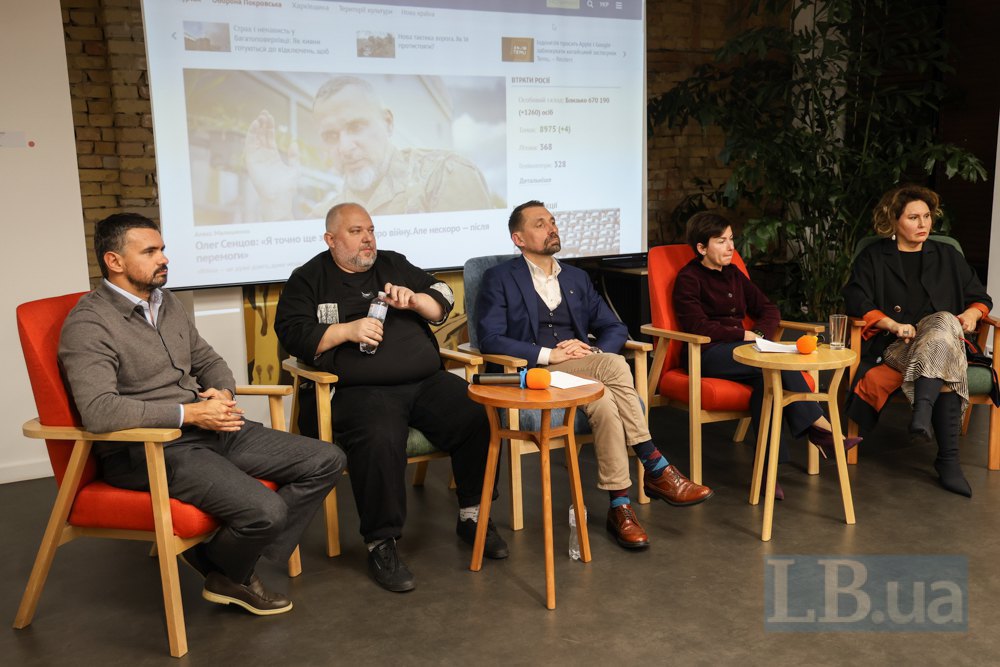
Why culture is important
It was Ukrainian culture and identity that were initially the object of Russian aggression, not the territory, says Mykola Tochytskyy, the newly appointed Minister of Culture and Strategic Communications.
"Putin, in his delusions and distorted historical constructions, claimed that someone created Ukraine and its identity. In fact, the Russian army has become convinced that Ukraine is a real phenomenon, a part of European culture," the minister said. In fact, one of the tasks of the Ministry of Culture is to clearly communicate that Ukrainians are among those who created the "great democratic Europe", Tochytskyy said. "And the second is to create the preconditions for persuading our partners and allies to help us win the war as much as possible.
"It's not about countering disinformation, it's about strategic communication. It is much broader and represents a proactive rather than reactive approach. To be a leader in the information space, we need to shape messages, not catch up with what Putin says, breaking down our identity," the minister said.
"The resolution of the Parliamentary Assembly of the Council of Europe of June 2024 states that the reason for the Russian-Ukrainian war is cultural genocide, the cultural erasure of the Ukrainian people," Nataliya Kryvda, head of the Ukrainian Cultural Foundation, supported the minister's thesis on the Russia's strategic plans. Because culture is about identity, about preserving the human in a person and continuity, she explained.
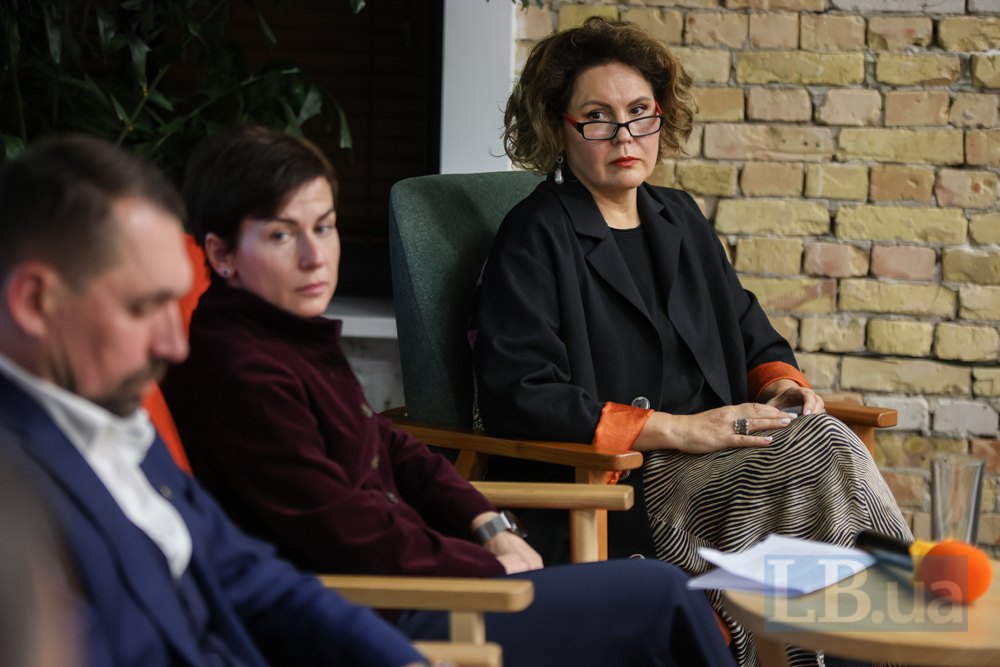
"Only culture preserves a sense of eternity, presence, and humanity in a person," said the head of the UCF. "It is what represents us to ourselves through the preservation of cultural heritage and its actualisation, and what represents Ukraine abroad.
Mykola Skyba, an expert in the field of education at the Ukrainian Institute for the Future, offered an even broader view of the power of culture.
"I will say a thesis that I heard from a fellow cultural worker, Tetyana Ogarkova, at one session of the Culture 2025 initiative, which we launched 10 years ago. Culture is what allows us to endure, to endure what is beyond human strength, human strength as a unit, but the sense of belonging to this field, the elastic field of values, norms, artefacts, landscapes creates that resilience.
That is why culture is really a matter of our resistance, but when it works as a system, when we do not reduce it to a tool, only to a marker of identity, when it fuels us," said Skyba.
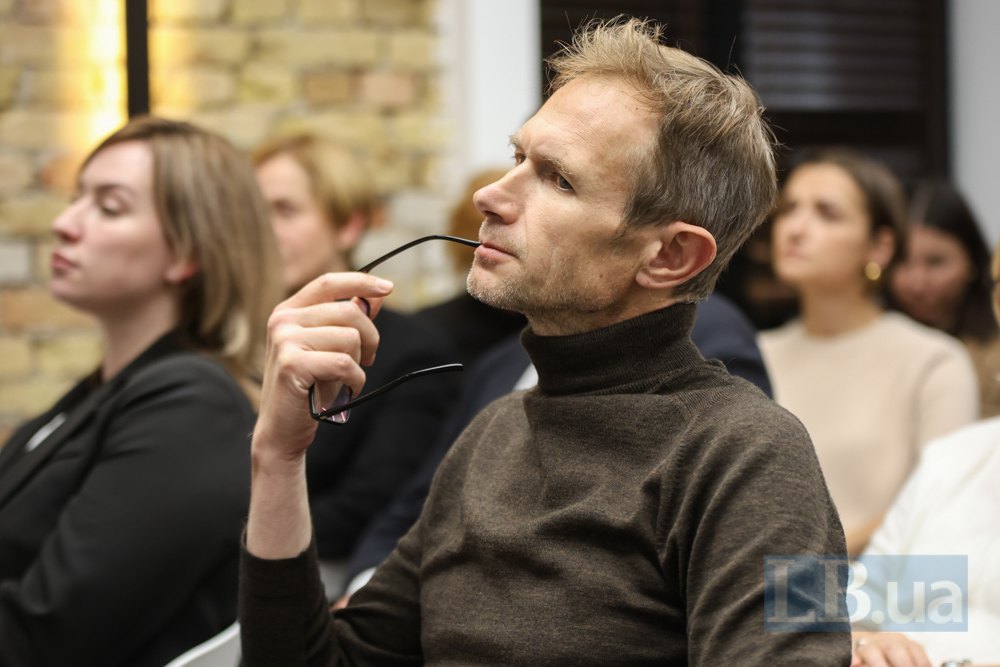
Olena Kovalska, Deputy Head of the Presidential Office for Humanitarian Affairs, said that the war showed how creatively culture can influence politics.
"April ‘22 was Angelina Jolie's visit to Ukraine. On 24 February ‘22, we met Sean Penn at the Presidential Office, and in the summer of the same year we made a film with him. This is an understanding that cultural events can influence politics in such a creative way.
...There were more and more such events and international projects. And it resulted in what we realised: the international direction, the cultural direction, is a powerful weapon. And it's not the Ministry of Culture that should learn diplomacy, but diplomats should teach the Ministry of Culture how to work," Olena Kovalska said.
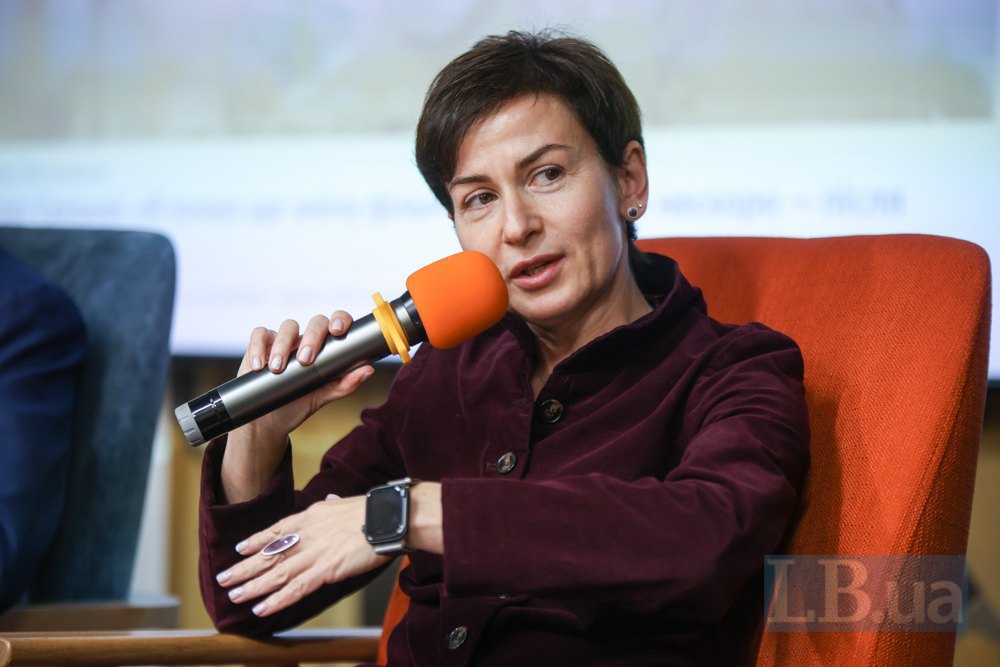
Maksym Holenko, General Director and Artistic Director of the Mariya Zankovetska National Theatre, also noted that culture, including theatre, has a therapeutic effect during the war. "People are looking for options for energy reset. And theatre is alive, and the audience comes for that. Plus, this space has begun to open up in a new way. It began to carry a new meaning. People needed it during the war. They are really working through their traumas. And if this is done in an adequate form, it is perceived by the viewer," the director added.
Businessman Ihor Liski believes that today we need to look at culture as a tool in the fight against Russia. Russia has long turned its cultural figures into propagandists and is actively using them against Ukraine, he said.
"Now there is a brutal war for the survival of the country and the nation. Not for any territory, not for dominance. It is a war for the preservation of not even a state - the nation of Ukrainians. We understand that if these 'brothers' from the north come, the Ukrainian nation will be cleansed as efficiently as possible. If anyone had illusions before, they simply do not have them now," said Ihor Liski.
The businessman emphasised that culture can become an effective tool in the fight for the minds of Ukrainians, for their unity, and for the attention and support of Western societies.
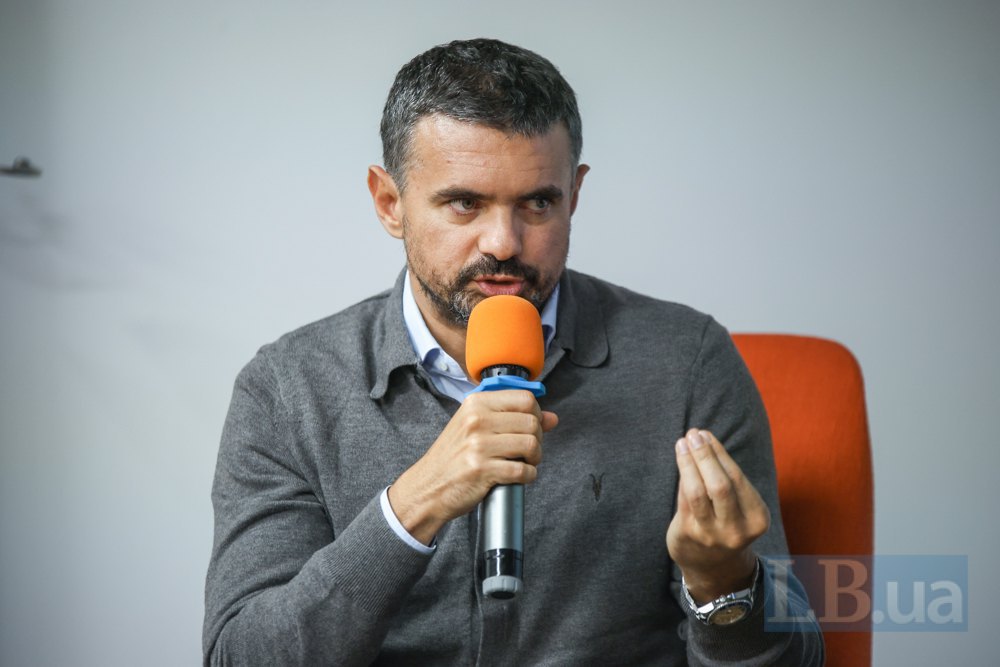
Cultural diplomacy or representation
When it came to the "cultural landing", the Koshyts Choir was mentioned three times in the audience as ‘Symon Petlyura's genius product’ to promote Ukrainian culture abroad.
"The choir was supposed to help Ukrainian diplomacy gain recognition and the necessary political decisions from foreign governments. It started with European countries and ended in America, and only because Ukraine had already lost its statehood at that time, it is difficult for us to assess what an outstanding role the promotion of the Ukrainian cultural product played in the formation of Ukrainian statehood a hundred years ago," Mykola Tochytskyy said.
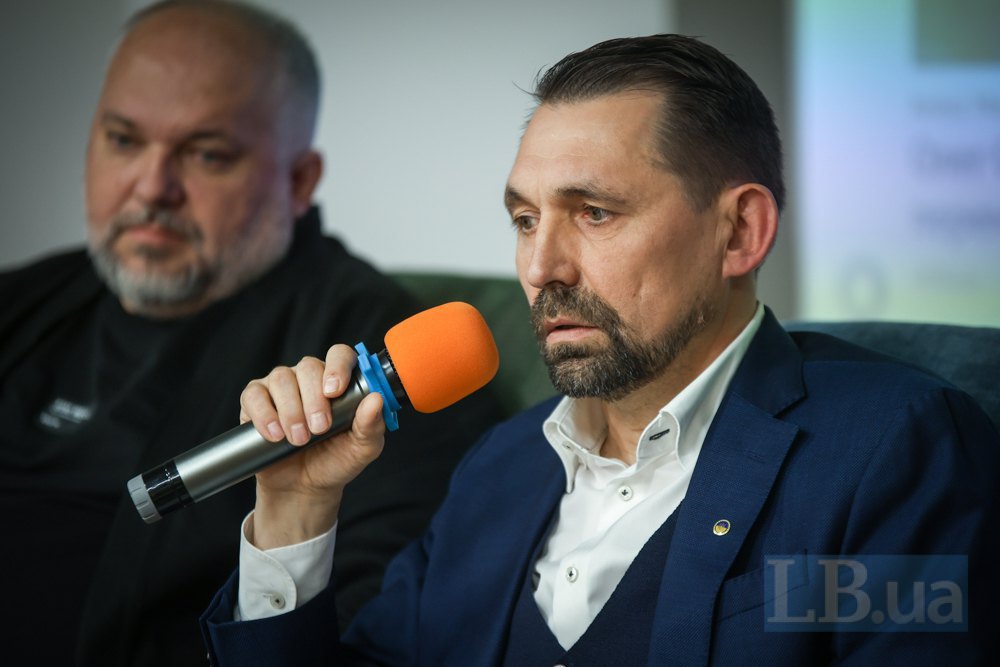
Today, there are modern analogues of the Koshyts Choir in Ukraine, said Olena Kovalska, deputy head of the OP. For example, the tours of the Antytila band cause a lot of publicity.
"This is also the Culture vs War project (a series of documentaries) - we have held thousands of screenings and art events during the war. These are our classical theatres that travel abroad and represent us. The film industry is also doing a lot of work. In February, we organised the Cinema for Victory festival, where we invited films made in Ukraine during the war. There were a lot of applications. We have announced this competition again and expect even more applications in February," Kovalska said.
The theatres are opening up to the world, said director Maksym Holenko, and gave his own example.
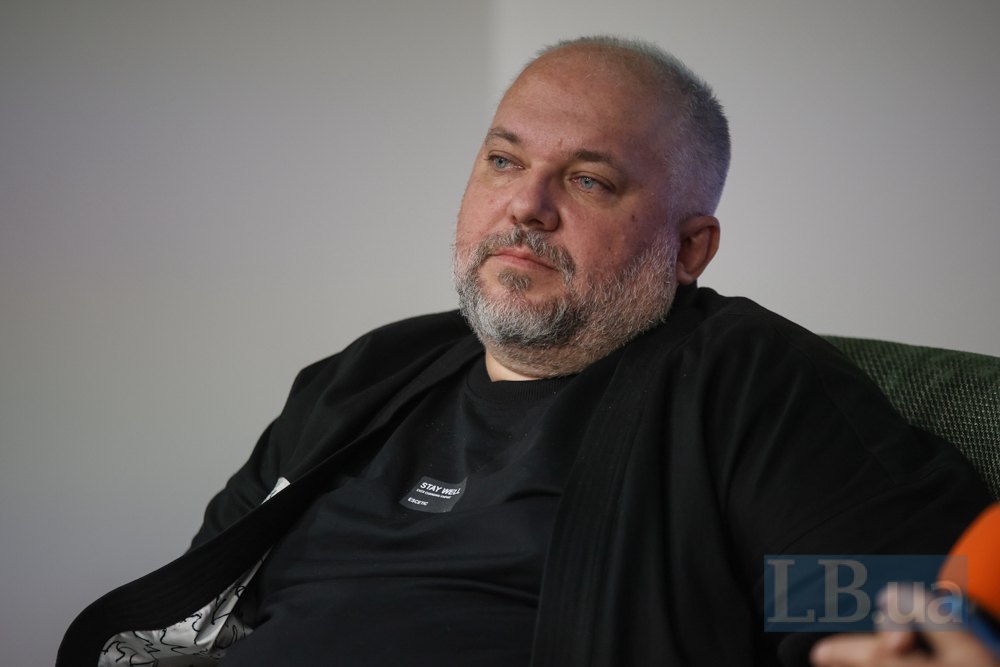
"For example, a German team came to the Zankovetska Theatre. A year ago it would have sounded very strange. But we attracted the interest of a leading German director, Jan Hockl, who decided that at this time he needed to be in this space and make a theatrical product in Ukraine - about Josef Roth, an Austrian writer of Jewish origin who was born in Brody, lived in Galicia and died in Paris. A man who unites us and Europe. A German team comes and puts on a play with Ukrainians that is very meaningful. This is the first stage.
The next stage is when several other European theatres join the Zankovetska Theatre: Deutsches Theater (Germany), Burgtheater (Austria)," said the director of the Lviv theatre. And this is a good way to promote Ukrainian theatre abroad, where the influence of Russian culture is still acutely felt. Wherever our actors do not reach, said Maksym Holenko, Kirill Serebrennikov appears. Therefore, we need to be present wherever we can.
According to Olena Kovalska, a representative of the OP, cultural diplomacy was actively involved in the promotion of the Peace Summit held in Switzerland in June. At that time, our representatives were in contact with the international community in education, culture, youth organisations, and religious leaders to advocate for their countries' participation in the Peace Summit. Kovalska also added that algorithms for Ukrainian filmmakers' actions at international festivals have been developed, including work with the team of 20 Days in Mariupol during the Oscar.

The Minister of Culture and Strategic Communications also recalled the work of the Naples Initiative, a kind of cultural analogue of Ramstein, where the G7 culture ministers are working on specific measures of the Vilnius Call to Action, a plan to restore Ukraine's cultural sector, which has already been joined by more than 40 countries. This initiative should strengthen the coordination of international efforts to support Ukraine's cultural sector - to preserve, protect and recover from the effects of the war. It also strengthens societies in supporting the Ukrainian nation and the Armed Forces.
Culture can also be a soft power, says restaurateur Yevhen Klopotenko. Even small steps bring results.
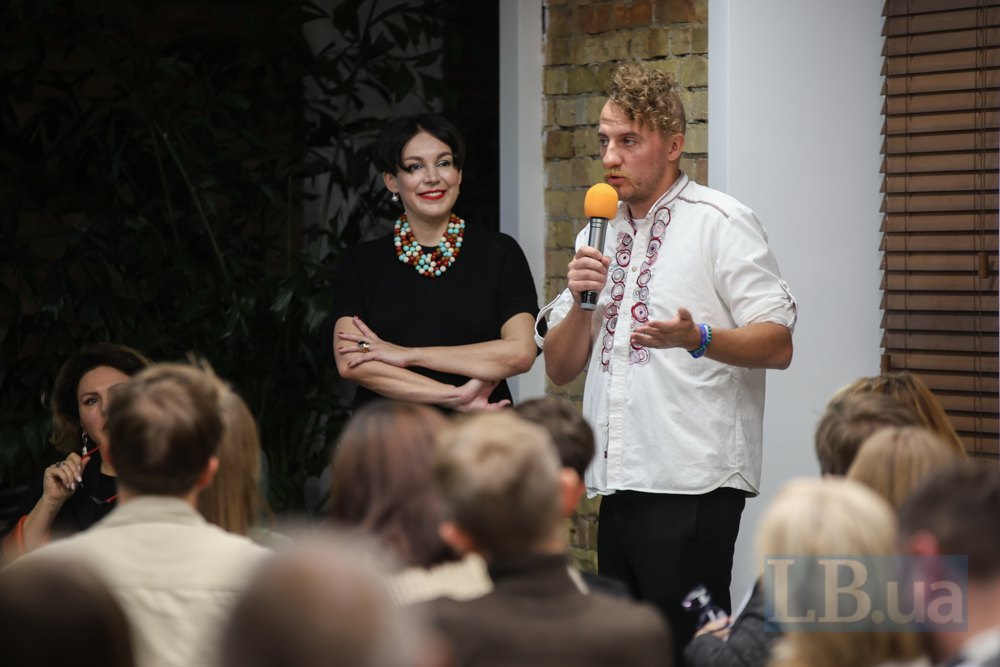
"Finally, food has become a culture too. It's not just about eating anymore. Cultural diplomacy also exists in such simple forms," Klopotenko assured. And Ukraine can also be popularised through food.
"Three years ago, there was a study on what people abroad think about Ukraine. Of course, it was Zelenskyy, the war, Klitschko and borsch for the 1%. When I came and hosted dinner parties and talked to people, they didn't understand what borsch was.
Two years later, at the Olympics in Paris, I cooked borsch for 400 Parisians... I had tears in my eyes: out of 400 people, only one did not know what borsch was. And three years ago, it was 99," the restaurateur said.
Anything Ukraine produces should be competitive - food, films or otherwise, he added.
"And when this borsch becomes better than tom yum, everyone starts eating it. It becomes a business card of Ukraine... Two or three weeks ago, Blinken came to Ukraine and came to Klopotenko's restaurant, someone in America told him it was the best. He came, shot a video, and posted it on various social media. That's how people saw that borsch exists... I can say that small steps bring big results. You just have to do something. That's my message," the restaurateur summed up.
According to Ostap Ukrayinets, a writer, translator, and representative of the Cultural Forces military association and the educational project Tvoya Pidpilna Humanitarka (Your Underground Humanitarian Aid), cultural diplomacy should not be confused with representation. It works a little differently. To come and tell people that we have culture is representation. And this is done by any person who travels abroad on invitation, with solo events, etc., he noted.
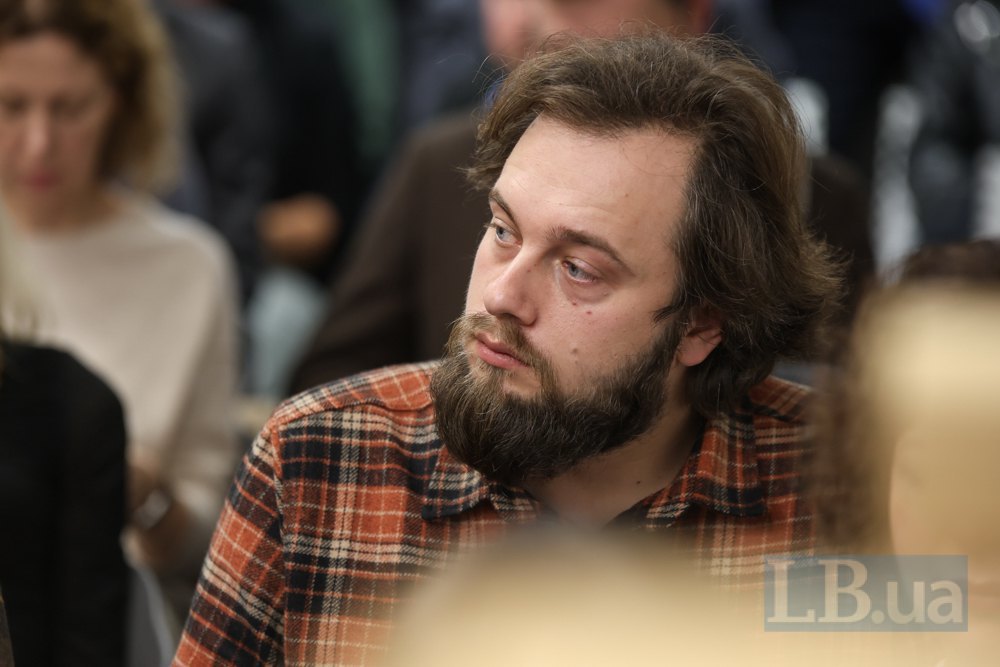
"Cultural diplomacy is a way of convincing foreign audiences that our culture has always been part of theirs. Don't look at how cool we are, what we have, but our culture is fundamentally part of yours, inextricably linked to it, and you can't get away from it," the writer stressed.
Ultimately, thanks to the tour of the Koshyts Choir and the Ukrainian culture it represented, Gershwin wrote Summer Time, and Shchedryk became Carol of the Bells, meaning that America received two wonderful cultural products, while Ukraine, which lost its statehood shortly after the choir's tour, could not support this cultural product in any way, Ostap Ukrayinets recalled.
"Now part of our unit in the United States is on a cultural diplomacy tour, and one of the components of this tour is to tell Americans that we already had a cultural diplomacy tour 100 years ago, we brought you works that became fundamental to many dimensions of your 20th century culture. It's actually our culture, you just forgot about it, and we forgot about it, because we need to remind ourselves, Ukrainian society, very often, very systematically, that the Koshyts Choir existed at all, and that Shchedryk is an iconic Ukrainian carol," said Ukrayinets.
Culture creates memes, information about societies that are reproduced. Business turns memes into a commodity, and the administration, the state authorities, tries to control the spread of these memes in ways that suit them, the writer explained.
"Today, American cinema has a quota for visual references to Russians - a volume of Dostoyevskiy somewhere in the frame or Swan Lake on TV. There is no sinister plan, I am convinced, that forces American screenwriters to write it in and directors to film it. There is cultural diplomacy, in which Russia invested enormous resources, which had a brilliant opportunity in Soviet times to create a network of Slavic studies departments that would shape this view of Russian culture. So today, the Western public is not aware of its cultural identity in a world where Russian culture does not exist or where they are not interested in it," added Ukrayinets.
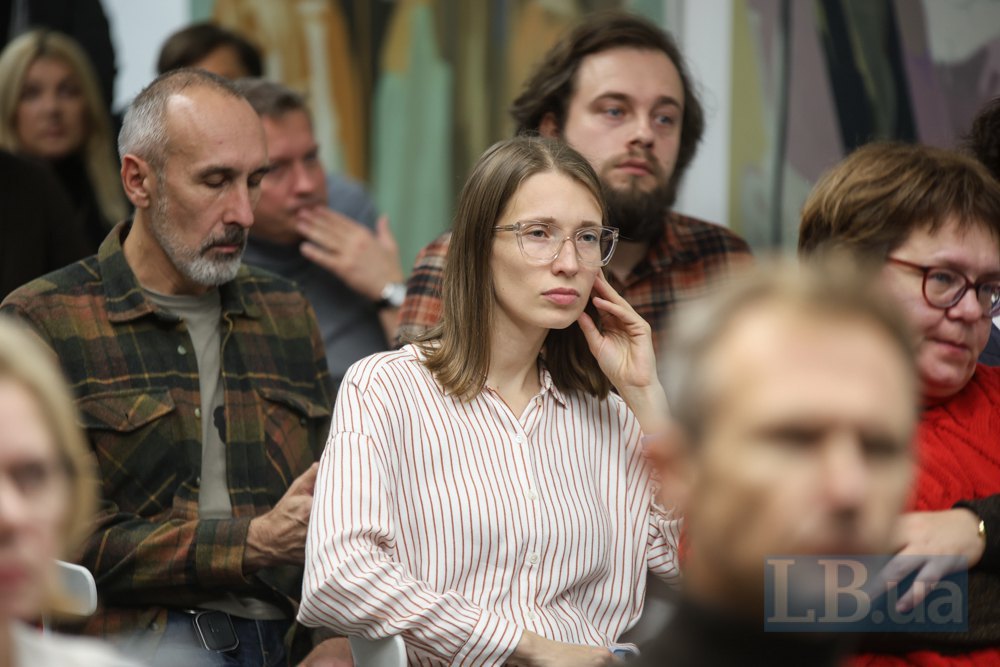
Whether it is possible to change this is a difficult question, "because Russian culture has a tool that we do not have - Gazprom," the writer stressed, and accordingly, the Russian House (Russian centres of culture and science abroad), wherever it is, has incomparably more resources to attract specialists, who will be followed by people who work with these specialists. It's not just about culture, it's also about psychological assistance after a full-scale invasion.
But, Ostap Ukrayinets noted, the Ukrainian state actually has a huge network of unofficial cultural representations - Ukrainian NGOs that work abroad under the laws of the states where they live and are funded by the states where they live and work. For example, the Foundation for Mass Spectacles in Poland, the Organisation of Ukrainians in Barcelona, etc. These organisations do not require finances from Ukraine, but only a connection with their homeland, the writer emphasises.
"These organisations were created to preserve their identity abroad, and if we are talking about how people who found themselves abroad in '22 need to be brought back somehow, they must remember that they are Ukrainians. Actually, these institutions seem to me to be an untapped resource, and perhaps the greatest resource that we have now. Because they already exist, they already have developed strategies. The only thing they lack is feedback," said Ukrayinets.
Ukraine will never be able to compete with Russia in terms of money, quantity or mass cultural products, said businessman Ihor Liski. That is why we - society, the state, all institutions, the diaspora, business, cultural figures, etc. - need to be more organised, creative and united. This may be the answer, he believes.
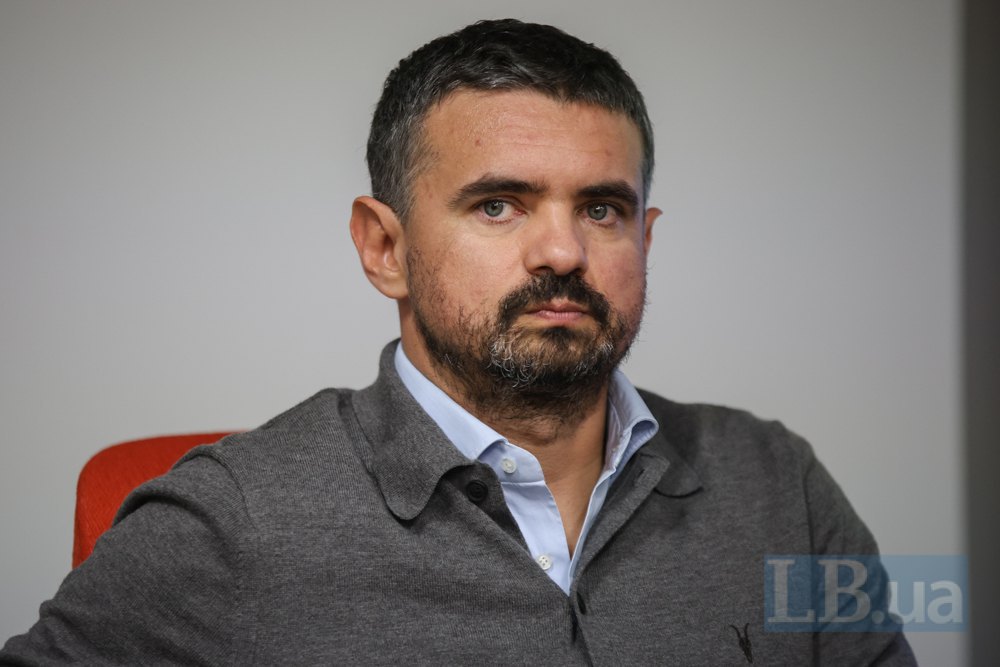
And such a system of cultural diplomacy should work with different target audiences: Ukrainians abroad, whose number has almost reached the number of those left in the country, and foreigners - in different ways and with products, but always of high quality and generated in Ukraine, said Olena Kovalska, Deputy Head of the OP.
Discussion on the preservation of cultural heritage
The problem of the destruction of historical heritage was raised before the Ministry of Culture, which was represented at the discussion by its newly appointed head Mykola Tochytskyy, by Iryna Fedoriv, head of the Golka public initiative. She reminded that developers destroy cultural monuments as much as Russians. She mentioned two specific examples - the Kitayev and the Museum of Outstanding Ukrainians.
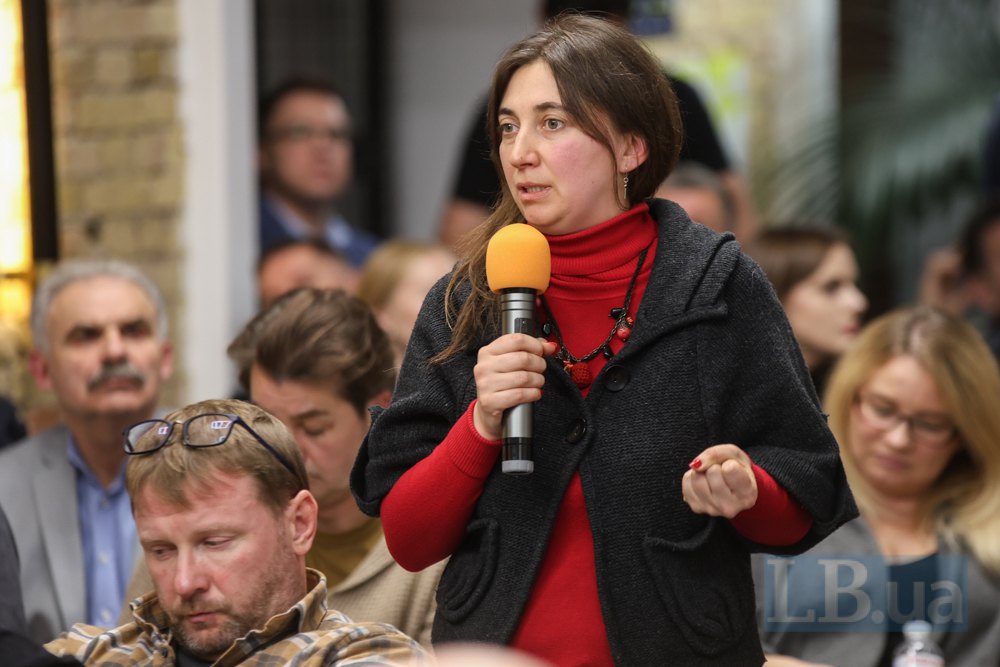
"When Russia attacked the Shukhevych Museum on New Year's Eve, it was really a war to preserve our identity. But sometimes we manage without an enemy. If we build a hotel near the Museum of Outstanding Ukrainians, it may collapse, and if we allow the development of Kitayev, where archaeology from the times of Kyivan Rus has been preserved, we will destroy the history on which our identity is built with our own hands," Fedoriv said, stressing that activists need the support and advocacy of the ministry in the courts.
In response, the minister noted that there are about a hundred cases of illegal construction. "Today, both UNESCO and the EU have claims to the preservation of our heritage.
"There is an important element for everyone to understand, from developers to ordinary citizens: heritage is something that belongs to the state. This is where I am against decentralisation and the transfer to the local level of deciding where the appropriate areas and buffer zones should be. Because there are clearly defined standards," said Mykola Tochytskyy.
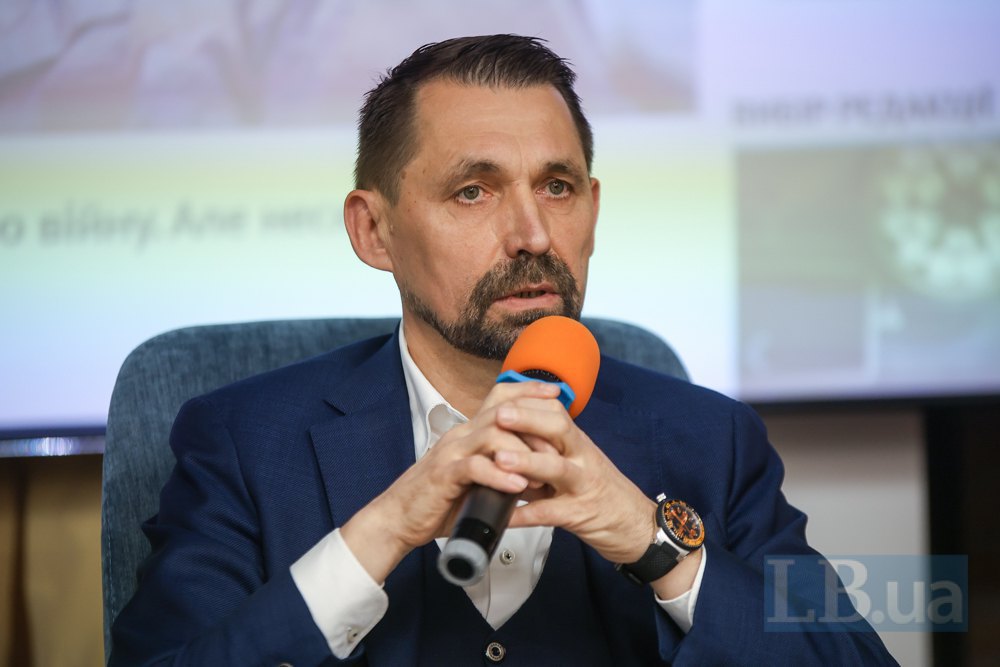
He emphasised: "Without the implementation of a number of European Council directives, European Parliament decisions and the UNESCO Convention on the Protection of Cultural Heritage, we will not see the European Union."
According to the minister, Ukraine must collect as much as possible of what has not yet been destroyed by the Russians and protect it for future generations.
"Without preservation, we will have nothing. It's not about money, it's about the eternal, because it belongs to Ukraine and Ukrainians. You and I are not eternal, but the heritage can be eternal if we take the right approach to its preservation," the minister said.
But there is a problem here, said Iryna Matsevko, rector of the Kharkiv School of Architecture: there are virtually no professional cultural heritage managers.
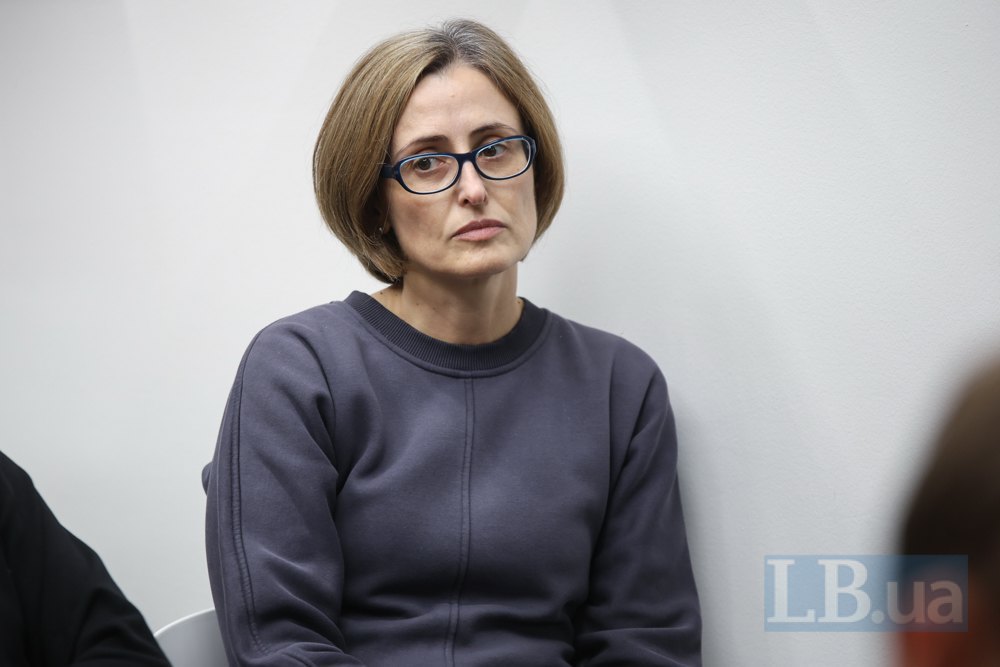
"If you look at who is currently dealing with heritage in a qualified and successful way, it is mainly non-governmental organisations. NGOs are massively being created, as we have no heritage managers in Ukraine. These are new institutions, such as Index, which was founded by the Austrian Institute, or the Centre for Urban History, which has one of the best and largest archives of digitised materials. This is an NGO created by very important people in Ukraine who are heads of state institutions. But for some reason, they were not able to do this work through state institutions," Matsevko said.
The same applies to education and, accordingly, training in this area, she added.
"Heritage studies came to Ukraine 10 years ago, and to this day UCU is boldly fighting not to close them, because it is not financially viable. All universities have departments of monument and museum studies, and when we talk about heritage, we still operate with Soviet constructs. We don't have any specialisation in heritage management that meets international standards," emphasised the rector of the Kharkiv School of Architecture. "I talk a lot with various international institutions, and they say that UNESCO has no one to work with. Few of these state institutions speak English, and even fewer can speak a common language, the same discourse. That is, we want to advocate for something, but the number of people who can do it is small."
In response, the Minister of Culture said that the ministry is currently working with European colleagues on several strategies to preserve cultural heritage. They should help overcome the risks of preserving cultural heritage, train specialists and create conditions for the preservation of artefacts and values, and define the boundaries of public and private partnerships. Canadian, French and British experience will be used to prepare the necessary draft laws. These strategies are planned to be presented in the spring.
About the industry's problems
Olena Kovalska, a representative of the President's Office, stressed that the State Film Agency should be removed from the subordination of a minister of the Cabinet of Ministers and reformed. In her opinion, cinema as a powerful tool for influencing the mass audience is not being developed today.
"There is a need to review the tasks facing the State Film Agency, to review its structure and subordination, because it is currently subordinated to the Minister of the Cabinet of Ministers, and this needs to be changed. Depending on what tasks this organisation will have, its structure will be changed or refined. And the strategy for finding a head should be the same as for the Ministry of Culture (Mykola Tochytskyy, a former career diplomat) - the international component is very important there... Because the front line is not only in the east of our country, but also in the west, and our artists should work there," said Olena Kovalska.
At the same time, Andriy Kotlyar, a member of the Babylon'13 film association and a member of the European Film Academy, called the State Film Agency "a deeply degraded structure, synonymous with the words 'shame' and 'sadness'".
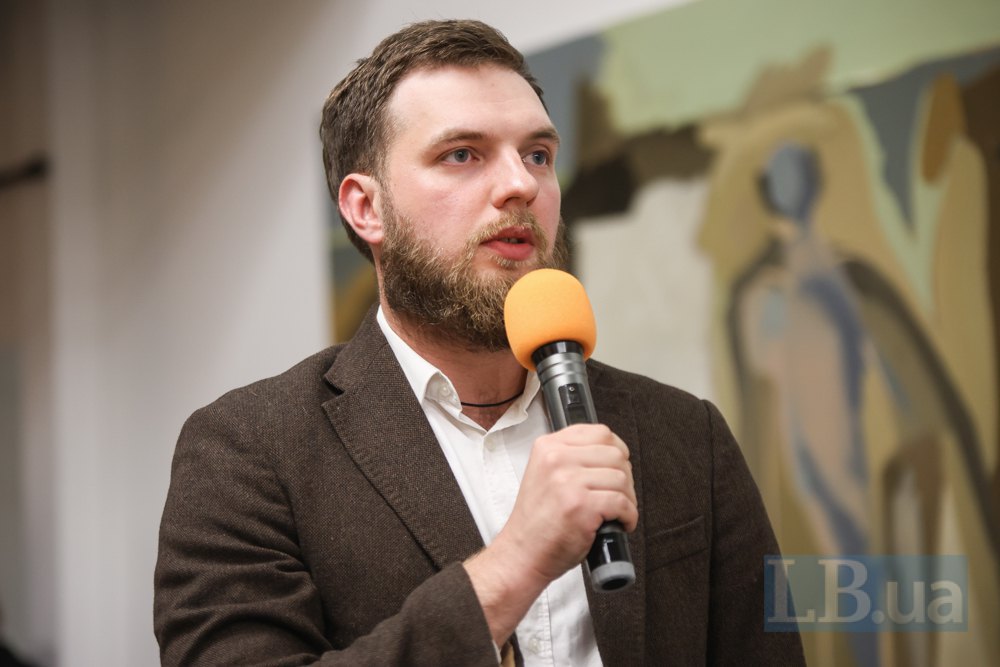
"I won't dwell on why this happened, because it's probably worth writing a dissertation about. It is worth talking about the fact that due to the failure of state policy and many other factors, in 2025 and 2026 we will have a bad situation with Ukrainian cinema.
I really liked the thesis that Ukrainian culture should ask itself what to do to make Ukraine win. And this is true. And we, as filmmakers and documentary filmmakers, are ready to be the people who will deliver the messages. But only when the state starts working with us under fair rules of the game. Because when the key institution, which is the place where the contracts and some murky schemes return, plays dishonestly, Ukrainian filmmakers are left on their own... I don't know which ministry the State Film Agency should be attached to, but it definitely needs to be attached so that transparent rules of the game and integrity return," Kotlyar said.
He added that the State Film Agency, oddly enough, last year received the function of documenting war crimes, and now filmmakers are involved in these processes.
"So, without fair rules of the game, all these tenders and state orders will be given to people who will do it shoddily. And a shoddy series about love is just a shoddy series about love. A shoddy film about war crimes in Bucha, Irpin or Kherson is a serious blow to the reputation of our country," said Andriy Kotlyar.
Volodymyr Bugrov, Rector of Taras Shevchenko National University of Kyiv, mentioned the scant presence of Ukrainian books in European universities, while Russian books are in piles.
"This is the student environment that votes. It is the student environment that will shape the situation in their country for five to seven years," the rector said.
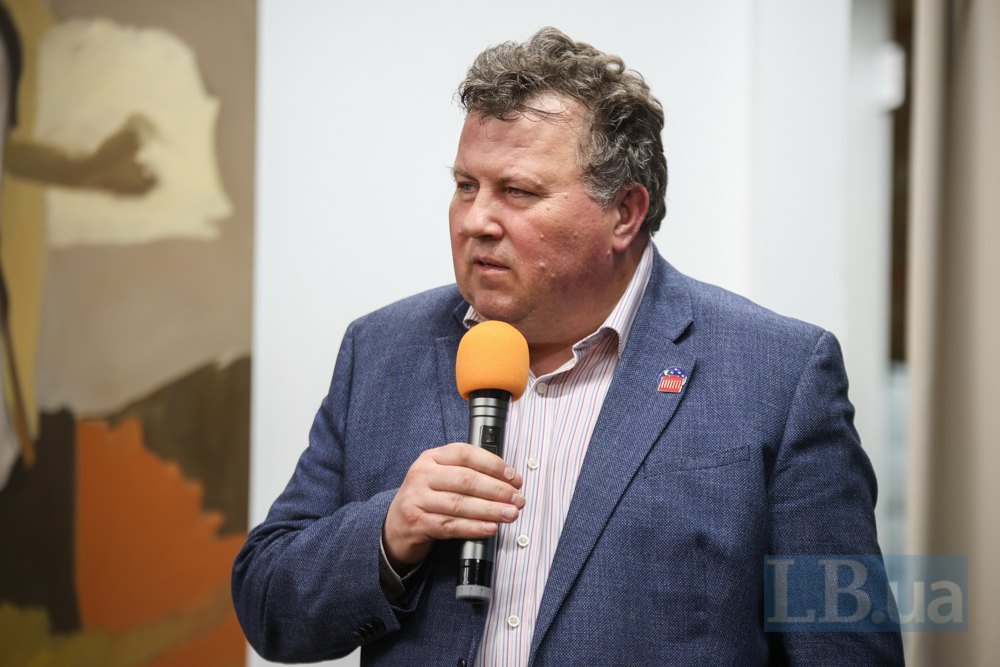
According to him, today literature is brought to foreign universities by those who go on private visits, and this work should be systematic at the state level.
Turning to young people and students, entrepreneur and Made in Ukraine founder Yuliya Savostina noted that educators should also be involved in the discussion of culture, and children aged 10-17 should be involved in the development of cultural projects.
"They all speak Russian at school during breaks. In 10 years' time, 'thanks' to this language, someone will tell them that 'we are equal, we are just like you'. If we don't engage children in development, in rethinking culture, cultural products, creating fundamentally new products and popularising them, we may lose this war, but in 10 years' time," Savostina believes.
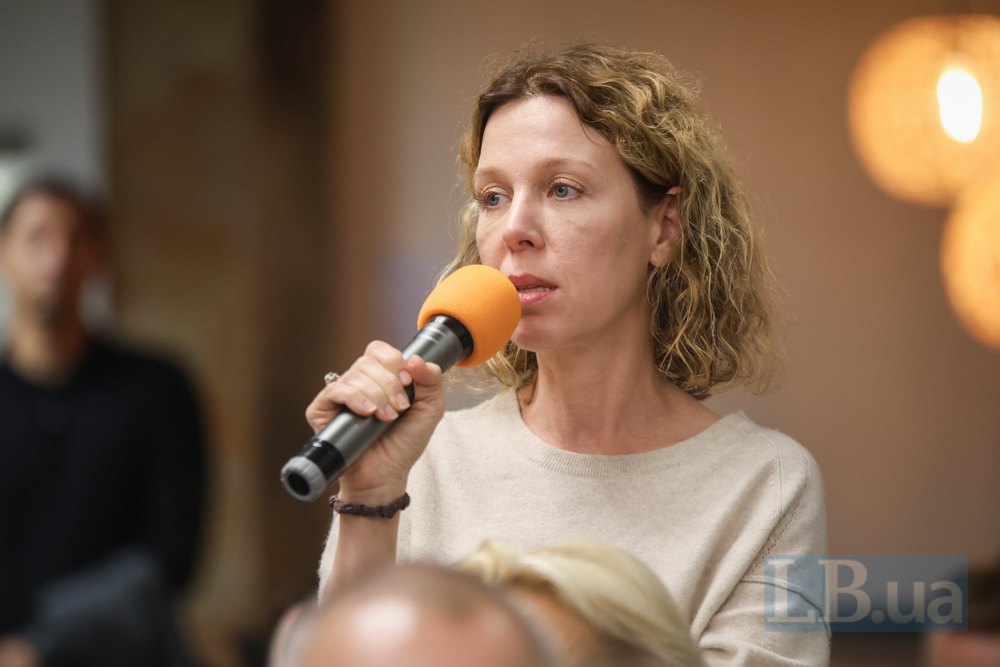
Olha Sahaydak, an art historian, curator, and representative of the Ukrainian Institute in France, pointed out that museum workers, librarians, and museum directors today receive six to eight thousand hryvnyas per month. And something needs to be done about it.
"This is not a question of increasing the budget. The issue is that if we can't maintain all this, it's expensive, maybe we need to stop overregulating and holding these people hostage. This sector really needs deregulation and liberalisation. Because the hostages of the cultural service are precisely the cultural workers," Sahaydak said.
She also stressed that there is a huge gap with cultural workers who are at the frontline, as mentioned by film director Oleh Sentsov.
"They do not know when they will return. And they will not join cultural diplomacy anymore, because they often fulfil their mission at a combat post. And they don't know when it will be over, they don't communicate these things. Actors waiting like manna for permission or not to go abroad are also lotteries and a reason for manipulation.
So, the servility of culture is dangerous. First of all, for the authorities. This is a loss of trust between the cultural sphere and the humanitarian sphere, which can give rise to meaning and explain meaning. And this crisis is deepening. And as a result, cultural figures may cease to be those who help us win and become those who will think about how to overthrow the government," the curator of Ukrainian art noted.
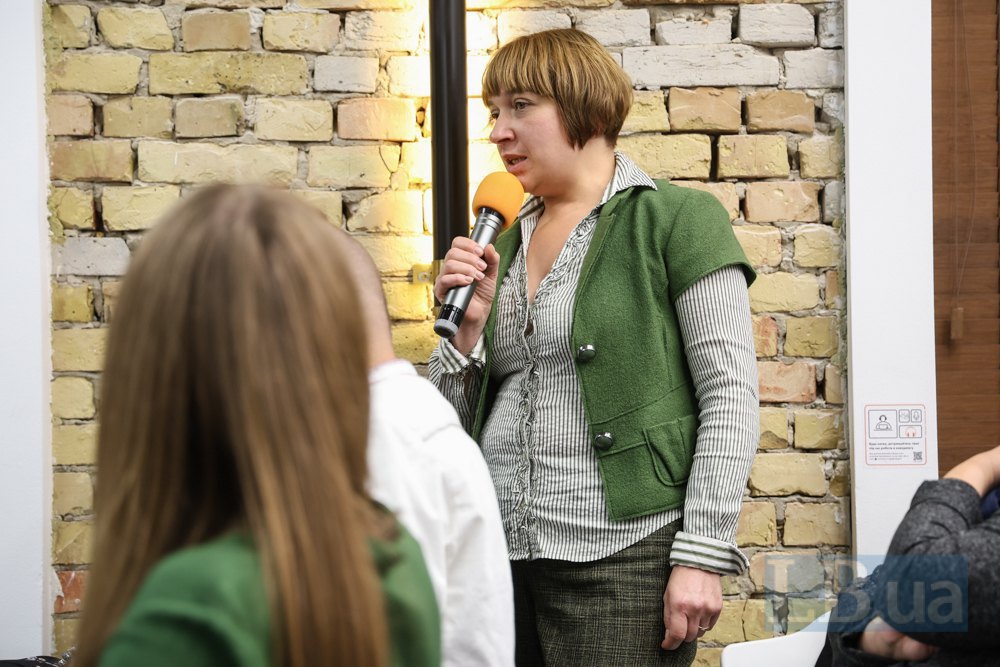
Regarding the travelling abroad of cultural figures, the head of the Ministry of Culture, Mykola Tochytskyy, said that he receives up to 100 applications every day, and since there is no single database of all those who travel through the ministry, information about each person has to be sought independently, which takes time.
In addition, he noted, there is another problem: one in five people who leave with the permission of the Ministry of Culture do not return, and the ministry is responsible for this. And the Ministry has appealed to the Cabinet of Ministers to regulate the deadlines and the package of documents.
Olena Kovalska, Deputy Head of the Presidential Office for Humanitarian Affairs, also sees a problem in the fact that many cultural products in the country are funded by grants from international organisations or Ukrainian businesses. And this needs to be systematised, as cultural figures cannot fully rely on budget funding, while private funding is based on the principle of "first come, first served".
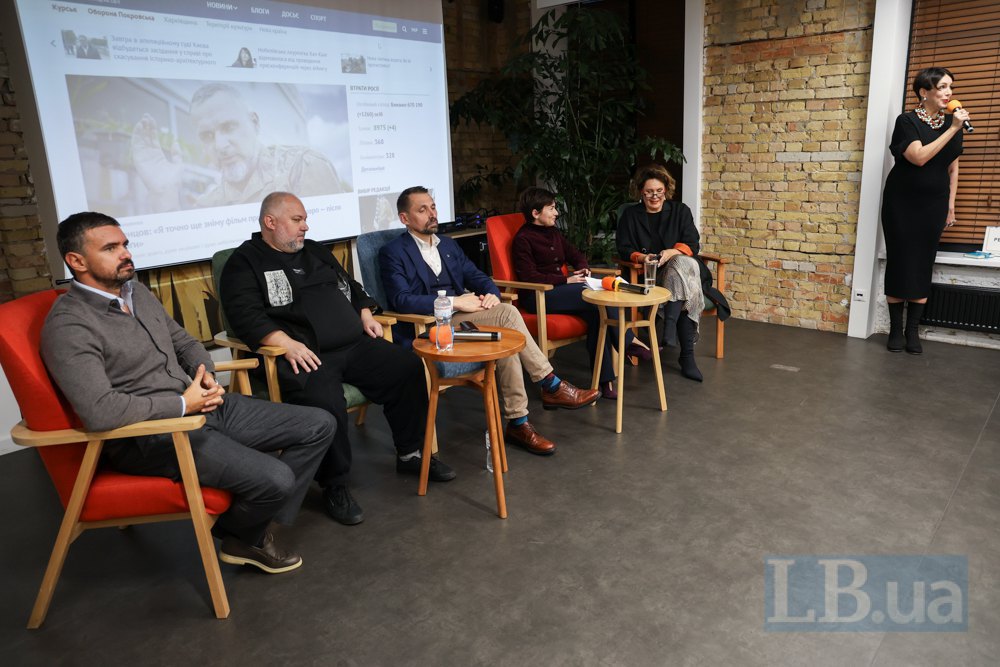
"Money should go where it is needed. Everyone should understand what strategic areas need to be supported, where more legislative or administrative support is needed. To make sure it's streamlined... There are discussions, we talk a lot with cultural figures, we identify their needs, but until we all get together and draw up a single strategy, nothing will happen," Kovalska emphasised.
Lack of funding for the cultural sector was also mentioned as a priority problem. On the one hand, said Nataliya Kryvda, head of the Ukrainian Cultural Foundation, the actors really lack funds. On the other hand, partners want to see that the Ukrainian state is also investing in its culture.
"We, all the institutions, are now holding the same negotiations. And our foreign partners say: we are ready to help, but we want to see the goodwill of the state. The state must invest in its culture. In order to promote Ukraine abroad, we need to produce this product here. It is necessary to produce a product, objectify values, meanings, form texts, cultural events, and so on. And the state cannot say: I'm not investing in this," Kryvda said.
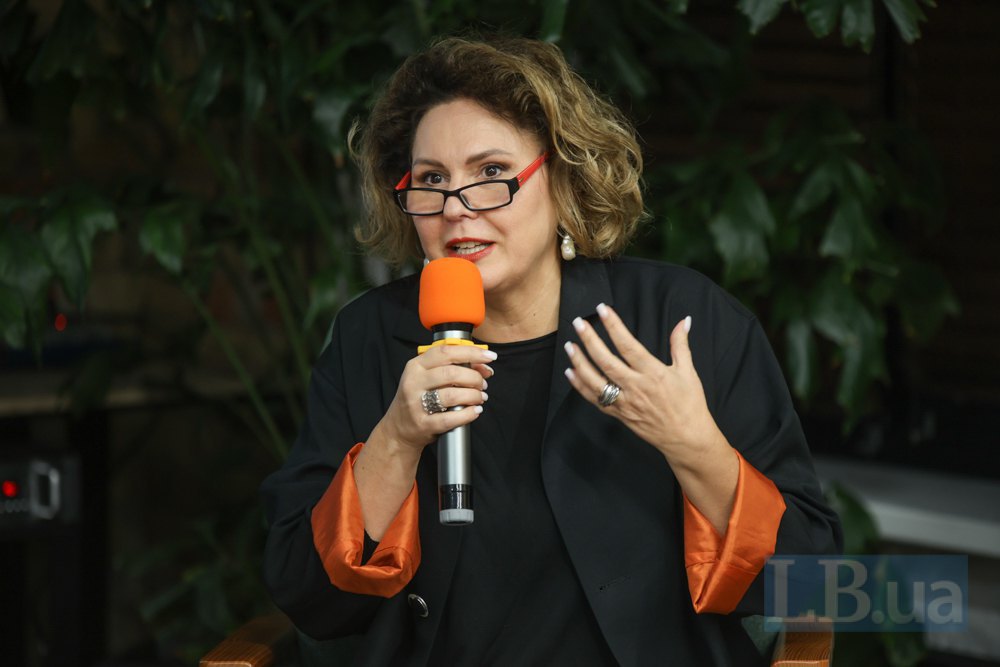
She was supported by the head of the Babyn Yar Historical and National Reserve, Roza Tapanova.
"The state has to show by more than 50% that it is working with this memorial, with the reserve, with cinema. It has to show that it is a priority, that it is part of its strategy and vision. And it invites other partners. This is normal, business is always about culture," Tapanova said.
So Nataliya Kryvda urged all cultural institutions and actors to advocate for an increase in the budget for culture, to explain why it is important and that this is not a request from the cultural sector alone, but a request from society.
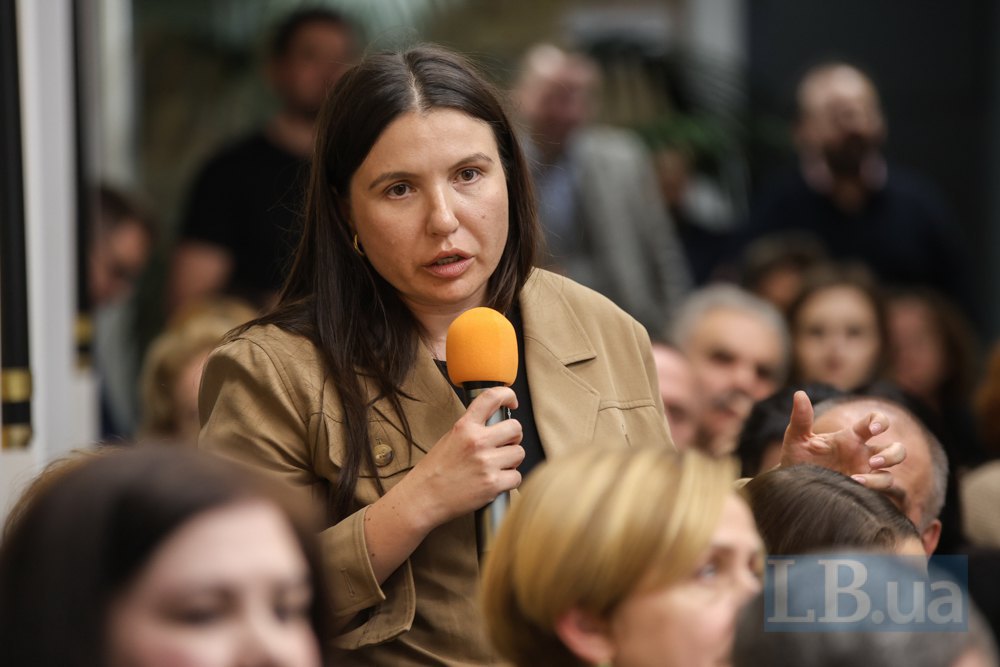
However, businessman Ihor Liski reminded that today the state is choosing whether to finance 155 mm shells or drones, to equip two more brigades or to allocate money for culture.
"These are very difficult decisions," the businessman said.
The discussion is also available in video format:








